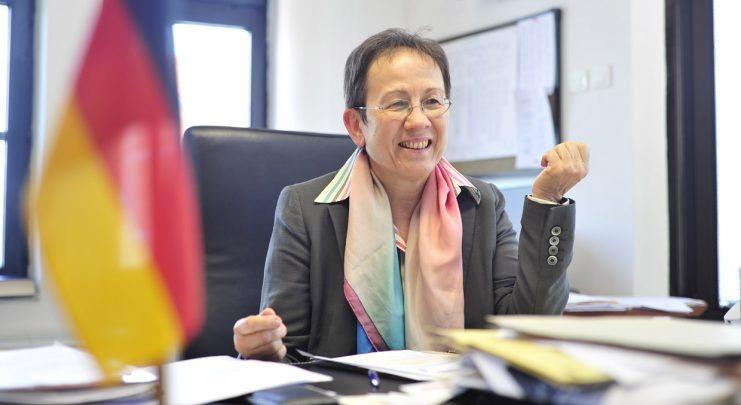Former German Ambassador to Macedonia Gudrun Steinecker criticized Bulgaria for its veto against Macedonia, calling its demands insulting, provocative, unscientific and unrealistic. Steinecker, who like a number of other Western diplomats in Macedona is an outspoken supporter of the Zaev regime and the Prespa treaty, spoke with Deutsche Welle to express her anger at Bulgaria and called on Germany, where she left the diplomatic service, to do something.
In her comments, Steinecker, who was also deputy ambassador to Sofia, blame German conservatives, especially the Bavarian CSU party, of supporting Bulgarian Prime Minister Borisov and his GERB part, and alleges corruption on his part, including involving EU funds.
We saw tens of thosands of protesters in Bulgaria and while they didn’t really shake his Government, the victory of Borisov in the next elections is not assured. To cling to power, Borisov needs allies and he finds them in the United Patriots, who have relatively small but reliable popular support.That is why observers believe that the decision to block the opening of accession talks with Macedonia is driven by domestic policy considerations, the former diplomat says, while also lamenting the fact that the Macedonian opposition VMRO-DPMNE party is now vindicated in its long standing predictions that Zaev’s policies will end in failure.
Steinecker insists that it is absurd for Bulgaria to claim that the Macedonian language is a Bulgarian dialect, given that all European languages were codified at more or less the same time, as the nation states were being created.




Comments are closed for this post.